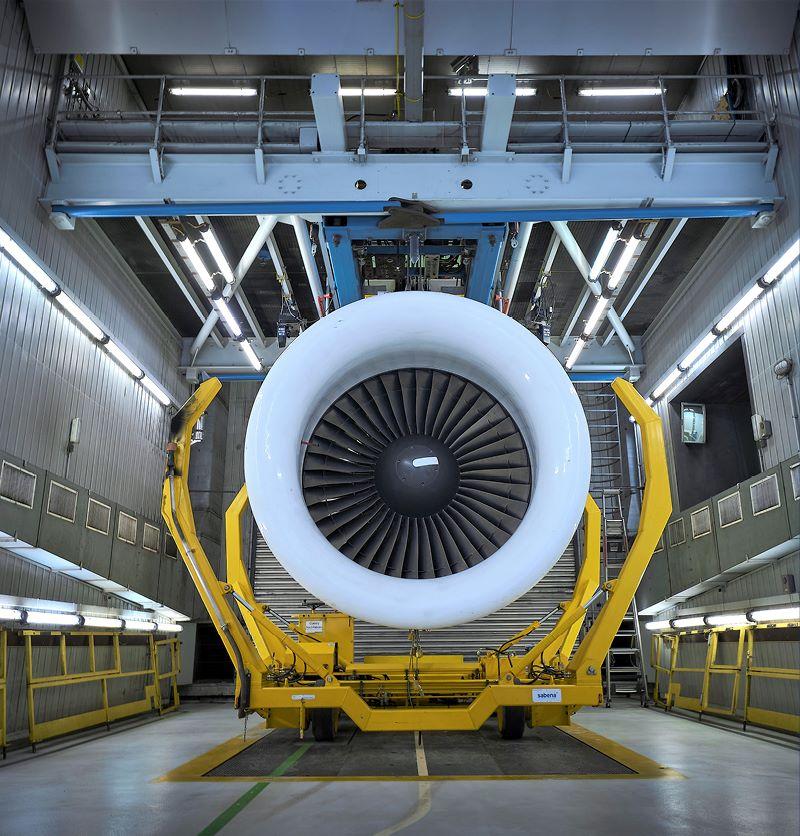SR Technics Targets Supply Chain Sustainability, Engine Test Cell Addition

ATLANTA—SR Technics will team up with logistics specialist Kuehne + Nagel and cargo carrier Atlas Air in a partnership targeting environmental impact reductions across the global supply chain.
The tie-up is called the Sustainable Engine Alliance and will explore ways to manage global engine supply chains more sustainably through a series of best practices. Initiatives include pushing digital services for emission transparency; reduction and avoidance of environmentally harmful materials; deploying sustainable fuels; and engine stand management solutions.
Kuehne + Nagel is a vendor for many of the company’s transportation needs while U.S.-based Atlas Air has been a customer of the MRO for more than a decade.
“Transferring an engine from a long-distance location back to our Zurich shop will leave a carbon footprint,” says Caroline Vandedrinck, SR Technics’ SVP of business development, speaking to Aviation Week at MRO Americas in Atlanta. “We want to minimize that carbon footprint so we can continue to have global customers and give a solution to those concerned about it.”
Vandedrinck adds that, eventually, SR Technics hopes to expand the partnership to include more airlines and potentially also OEMs with sustainability part of its strategic pillars with its plan for this year to make any environment impact reductions auditable. “We’re looking at test cell efficiency but also areas such as a reduction in the time of the test, which is a direct impact,” she says.
Another development at SR Technics is announcing plans to reactivate a former test cell in Zurich in readiness for Pratt & Whitney PW1100-JM (GTF), CFM56-5B and -7B, and eventually Leap-1A and -1B capabilities. The company signed a licensing agreement for the Leap-1B in February and joined IAE’s global aftermarket network for the GTF engine in 2022.
Last week, SR Technics broke ground on the test cell, which it aims to have activated by the second half of 2024. The test cell is the second located at the shop but it has been inactive for several years, having previously been used to test JT8D engines.
The test cell will be expanded to a 7x8 m (23 x 26 ft.) cross-section while being redesigned to meet aerodynamic and acoustic requirements in readiness for reactivation. Once live, it’ll have testing capacity for more than 200 engines annually.
Vandedrinck says the reason the company chose to reactivate the former test cell was due to capacity constraints related to its sole active one due to steady workloads generated by PW4000 and CFM56 engine maintenance.
Overall, SR Technics is seeing an upsurge in heavier engine workscopes over the past six months as more carriers send engines needing more extensive repairs into MRO facilities.
“Because airlines deferred maintenance for so long and leased engines and burned off green-time, we are now seeing a lot more heavy shop visits,” Vandedrinck notes. “Airlines are still very cash conscious so the discussions on the workscopes and considerations such as ‘repair vs new’ are everyday occurrences as they want to tailor and customize these workscopes to really meet their requirements.”





